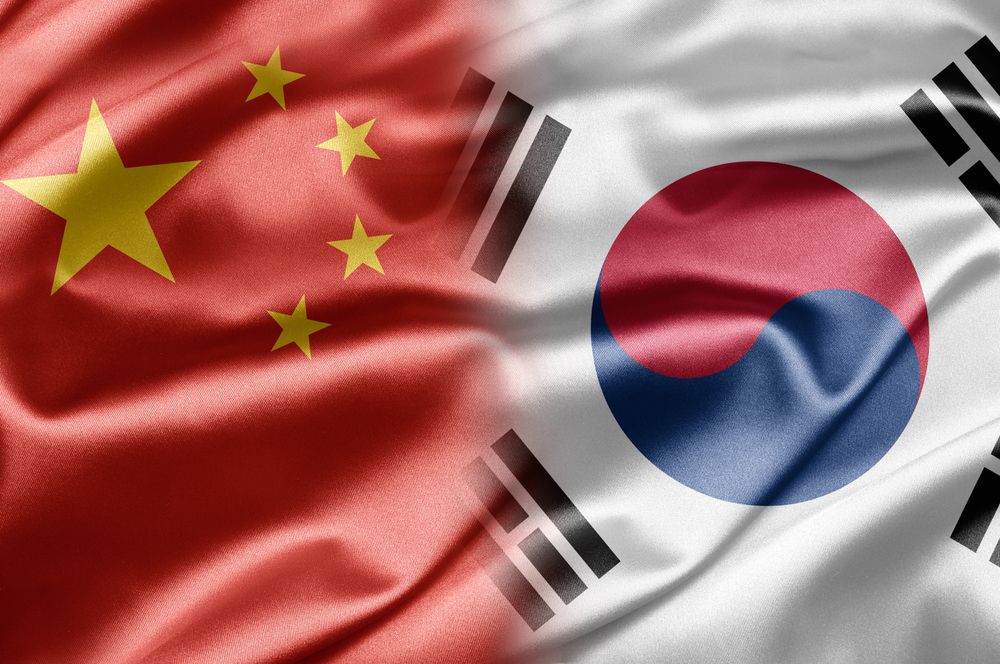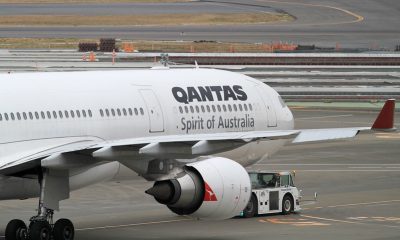Business and Economy
China, South Korea summit to enhance already strong ties with currency exchange, trade talks
SEOUL, South Korea—The economic relationship between China and South Korea looks like it couldn’t be better as Xi Jinping arrives in Seoul Thursday for his first presidential visit to the Korean Peninsula.
Yet expectations are high that the summit between Xi and South Korea’s president Park Geun-hye will deepen those ties with a string of agreements including direct trading between the won and the yuan, which could boost the already substantial trade between the two countries.
The size of the delegation from the world’s second-largest economy underlines that anticipation. Xi is travelling with about 250 business executives including luminaries such as Jack Ma, founder of the Alibaba e-commerce empire, and Robin Li, chairman of search engine Baidu. The Korea Chamber of Commerce says it will be the biggest ever foreign business delegation to South Korea.
China is South Korea’s largest trading partner. South Korea’s two-way trade with China was $229 billion last year, exceeding the combined value of South Korea’s trade with the U.S. and Japan. It is also a crucial market and a production base for South Korean exporters such as Samsung, Hyundai and LG who are key foreign investors for China.
But nearly all South Korean exporters and importers still use the U.S. dollar to do business with their Chinese counterparties because there is no market to directly exchange the won and the yuan. That incurs additional currency exchange fees and makes traders vulnerable to fluctuations in the won-dollar exchange rate. More than 90 per cent of exports and imports with China were transacted in the U.S. dollar in 2013, according to the Bank of Korea.
That may change as soon as this year.
The South Korean presidential office said the two leaders will discuss the opening of a market to directly exchange the won and the yuan.
South Korean policymakers have said they would like to make Asia’s fourth-largest economy a major centre for trading the yuan, vowing to complete infrastructure for such a market by the end of this year. That strikes a chord with Beijing which is inching toward making the yuan an international currency and an alternative to the dollar.
“The economic relationship between South Korea and China is in a very good situation,” said Jee Mansoo, an economist at Korea Institute of Finance. “The most noteworthy issue during the summit would be how South Korea can collaborate as the global hub for the yuan.”
If the agreement on the currency trading is signed during the summit, the South Korean won will join major currencies such as the U.S. dollar, Japanese yen and British Pound that are directly convertible with the Chinese unit.
Another issue likely to get a boost from Xi’s visit to Seoul is the ongoing free trade talks between the two countries. China and South Korea have held about a dozen rounds of negotiations over removing tariffs on goods and services but they still have not narrowed their stance on some issues, such as opening South Korea’s agricultural industries.
The South Korean president’s office said the two leaders are expected to discuss how to accelerate the negotiations for the trade deal.
All these moves will push South Korea closer to China, while Seoul has made little headway in its relationship with Japan.
In 1996, South Korea briefly opened a market where traders could directly exchange the won and the yen but that shut down in a few months. Trade talks between South Korea and Japan halted in 2004 and are yet to be resumed. The mood between the two countries recently turned sour due to recent Japanese actions seen in Seoul as attempts to whitewash past wartime atrocities, including the sexual enslavement of Korean women for the Japanese military.
The focus of South Korean tourism has also shifted to Chinese visitors as the yen’s depreciation in the past two years dented Japanese appetite for foreign travel.
For Samsung Electronics Co., China last year overtook South Korea as a bigger revenue generator, accounting for about one fifth of its revenue, nearly twice as much as revenue from its home market. Samsung’s sales from China surged from 23.1 trillion won ($23 billion) in 2011 to 40.1 trillion won in 2013. Sales in South Korea shrank from 26.5 trillion won to 22.8 trillion won over the same period.
Earlier this year, Samsung began operating a memory chip factory in Xi’an in western China, which reportedly cost $7 billion. Lee Jae-yong, Samsung’s vice chairman, is expected to hold a separate meeting with Xi according to media reports. Samsung declined to confirm.






















